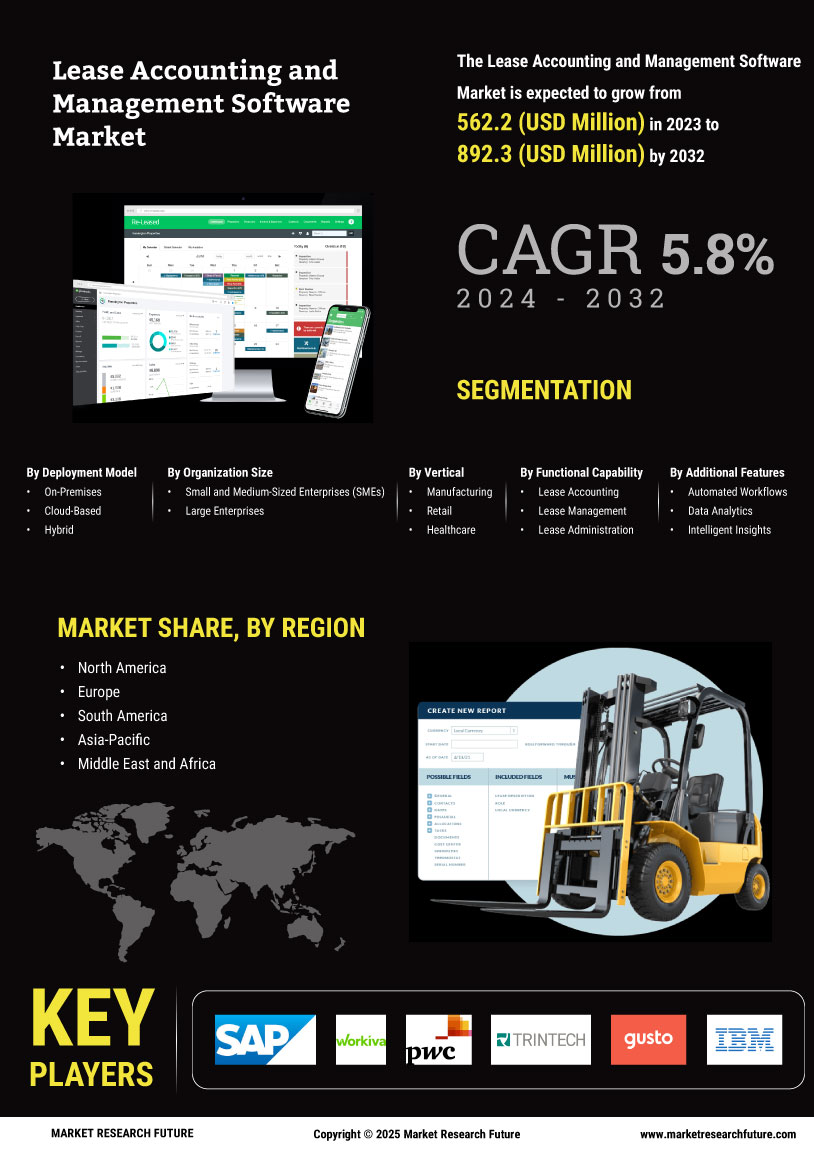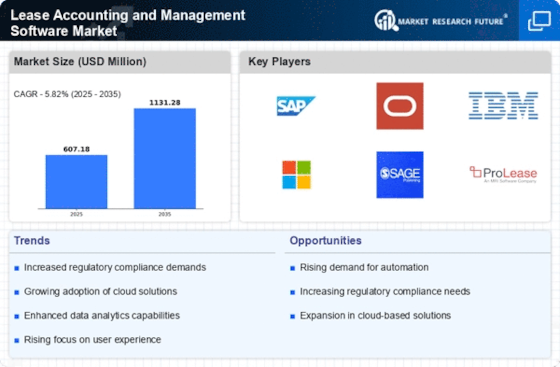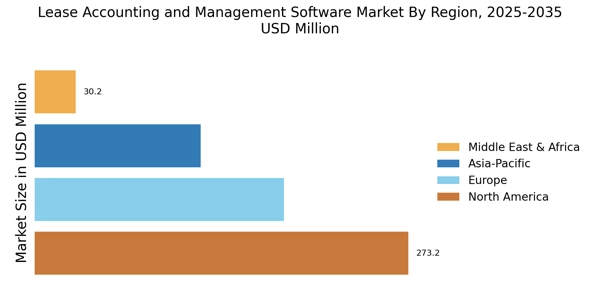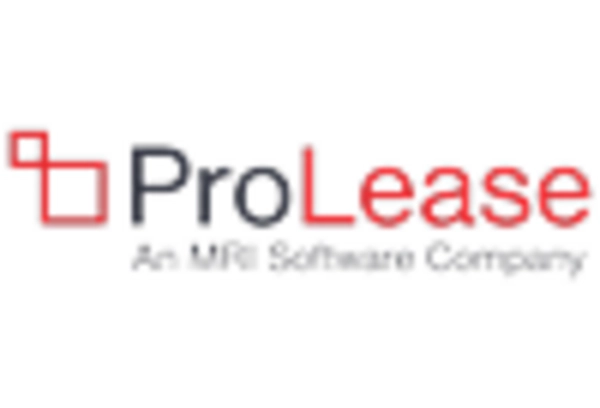Enhanced Risk Management
Enhanced risk management is emerging as a pivotal driver in the Lease Accounting and Management Software Market. Organizations are increasingly aware of the financial and operational risks associated with lease agreements, including compliance risks and potential liabilities. Lease accounting software provides tools for identifying and mitigating these risks by offering comprehensive visibility into lease terms and conditions. This capability is particularly valuable in industries with complex leasing arrangements, where the potential for oversight is high. As companies prioritize risk management in their strategic planning, the demand for lease management solutions that facilitate proactive risk assessment is expected to grow, potentially leading to a market expansion of over 12% in the coming years.
Focus on Cost Management
Cost management remains a critical driver in the Lease Accounting and Management Software Market, as organizations seek to optimize their lease portfolios. Effective lease management can lead to significant cost savings by identifying underutilized assets and renegotiating unfavorable lease terms. Companies are increasingly leveraging lease accounting software to analyze their lease agreements, enabling them to make informed decisions regarding renewals and terminations. This focus on cost efficiency is particularly relevant in competitive industries, where every dollar counts. As businesses recognize the financial benefits of effective lease management, the market for lease accounting software is likely to experience robust growth, with forecasts suggesting an increase in adoption rates among mid-sized and large enterprises.
Technological Advancements
Technological advancements are reshaping the Lease Accounting and Management Software Market, as organizations increasingly seek innovative solutions to streamline their lease management processes. The integration of artificial intelligence and machine learning capabilities into lease accounting software enhances data analysis and reporting accuracy. These technologies enable organizations to automate routine tasks, reducing manual errors and improving efficiency. Furthermore, cloud-based solutions are gaining traction, allowing for real-time access to lease data and facilitating collaboration across departments. As businesses recognize the potential of these technologies, the market is likely to witness a surge in demand for advanced lease management software, with projections indicating a significant increase in market size over the next few years.
Increased Regulatory Scrutiny
The Lease Accounting and Management Software Market is experiencing heightened regulatory scrutiny, compelling organizations to adopt robust lease accounting solutions. Regulatory bodies have introduced stringent guidelines, such as ASC 842 and IFRS 16, which mandate the recognition of lease liabilities and assets on balance sheets. This shift necessitates accurate tracking and reporting of lease obligations, driving demand for specialized software. As companies strive to comply with these regulations, the market for lease accounting software is projected to grow significantly, with estimates suggesting a compound annual growth rate of over 10% in the coming years. Organizations that fail to adapt may face substantial penalties, further incentivizing the adoption of comprehensive lease management solutions.
Growing Demand for Transparency
The Lease Accounting and Management Software Market is witnessing a growing demand for transparency in financial reporting. Stakeholders, including investors and regulatory authorities, are increasingly scrutinizing financial statements, necessitating clear visibility into lease obligations. Companies are compelled to adopt lease accounting software that provides comprehensive reporting capabilities, ensuring that all lease-related data is accurately captured and presented. This trend is particularly pronounced among publicly traded companies, where transparency is paramount for maintaining investor confidence. As organizations strive to enhance their financial reporting practices, the demand for sophisticated lease management solutions is expected to rise, potentially leading to a market expansion of over 15% in the next few years.


















